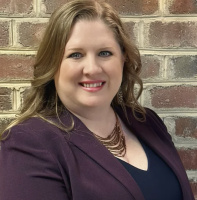Chapel Hill White Collar Crime Lawyer, North Carolina
Sponsored Law Firm
-
 x
x

Click For More Info:
-
The Law Offices of Richard L. Cooper, P.A.
848 Brickell Avenue Suite 800 Miami, FL 33131» view mapDWI/DUI, Drug Trafficking, Felony Nationally Ranked Top 40 Under 40
With Richard L. Cooper you can expect a trusted confidant who will work diligently to fully understand your case and determine a road map to help you regain control of your life.
800-756-2781
Lindsey Granados
✓ VERIFIEDCriminal, DUI-DWI, Felony, White Collar Crime, Misdemeanor
Criminal Defense Attorney & Trial Lawyer
Attorney Lindsey D. Granados is an experienced trial lawyer and seasoned litigator who advocates tirelessly for her clients. She truly cares for the w... (more)
FREE CONSULTATION
CONTACTFREE CONSULTATION
CONTACTMichael W. Patrick
Products Liability, Personal Injury, White Collar Crime, Products Liability, Accident & Injury
Status: In Good Standing Licensed: 47 Years
Joan Heather Krause
Health Care Other, White Collar Crime, Criminal, Securities
Status: In Good Standing Licensed: 30 Years
Neil W. Morrison
Traffic, White Collar Crime, DUI-DWI, Criminal
Status: In Good Standing Licensed: 19 Years
Danielle Carim Gray
Government Contract, Government, White Collar Crime, Banking & Finance
Status: In Good Standing Licensed: 20 Years
Kathryn Rose Barry
Employment Discrimination, White Collar Crime, Corporate, Personal Injury
Status: In Good Standing
Virginia Fitt
Litigation, International Other, Pharmaceutical Product, White Collar Crime
Status: In Good Standing Licensed: 14 Years

 Richard L. Cooper Miami, FL
Richard L. Cooper Miami, FL AboutMiami Attorney at Law
AboutMiami Attorney at Law ServicesCriminal Defense
ServicesCriminal Defense

